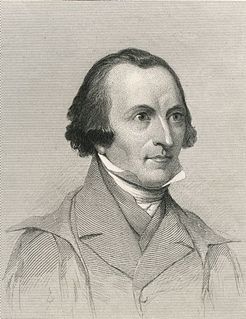A Quote by Saint Ignatius
Be generous to the poor orphans and those in need. The man to whom our Lord has been liberal ought not to be stingy. We shall one day find in Heaven as much rest and joy as we ourselves have dispensed in this life.
Related Quotes
I beg Our Lord, Monsieur, that we may be able to die to ourselves in order to rise with Him, that he may be the joy of your heart, the end and soul of your actions, and your glory in heaven. This will come to pass if, from now on, we humble ourselves as He humbled Himself, if we renounce our own satisfaction to follow Him by carrying our little crosses, and if we give our lives willingly, as He gave His, for our neighbor whom He loves so much and whom He wants us to love as ourselves.
When shall it be that we shall taste the sweetness of the Divine Will in all that happens to us, considering in everything only His good pleasure, by whom it is certain that adversity is sent with as much love as prosperity, and as much for our good? When shall we cast ourselves undeservedly into the arms of our most loving Father in Heaven, leaving to Him the care of ourselves and of our affairs, and reserving only the desire of pleasing Him, and of serving Him well in all that we can?
For it is good to cleave to God, and to put our hopes in the Lord, so that, when we have exchanged this poor life for the kingdom of heaven, we may cry aloud: 'Whom have I in heaven but thee? There is none upon earth that I desire beside thee.' Assuredly, when we have found such wealth in heaven, we may well grieve to have sought after poor passing pleasures here on earth.
The rich man, when contributing to a permanent plan for the education of the poor, ought to reflect that he is providing for that of his own descendants; and the poor man who concurs in a provision for those who are not poor that at no distant day it may be enjoyed by descendants from himself. It does not require a long life to witness these vicissitudes of fortune.
How can we give to the Lord? What shall we give to him? Every kind word to our own, every help given them, is as a gift to God, whose chief concern is the welfare of his children. Every gentle deed to our neighbor, every kindness to the poor and suffering, is a gift to the Lord, before whom all mankind are equal. Every conformity to the Lord's plan of salvation-and this is of first importance-is a direct gift to God, for thereby we fit ourselves more nearly for our divinely planned destiny.
Our thoughts are boundless, though our frames are frail,
Our souls immortal, though our limbs decay;
Though darken'd in this poor life by a veil
Of suffering, dying matter, we shall play
In truth's eternal sunbeams; on the way
To heaven's high capitol our cars shall roll;
The temple of the Power whom all obey,
That is the mark we tend to, for the soul
Can take no lower flight, and seek no meaner goal.
I salute you! There is nothing I can give you which you have not; but there is much, that, while I cannot give you, you can take. No heaven can come to us unless our hearts find rest in it today. Take Heaven. No peace lies in the future which is not hidden in this present instant. Take Peace. The gloom of the world is but a shadow; behind it, yet, within our reach, is joy. Take Joy.
The Poor Man whom everyone speaks of, the Poor Man whom everyone pities, one of the repulsive Poor from whom charitable souls keep their distance, he has still said nothing. Or, rather, he has spoken through the voice of Victor Hugo, Zola, Richepin. At least, they said so. And these shameful impostures fed their authors. Cruel irony, the Poor Man tormented with hunger feeds those who plead his case.
The aspirations and expectations of a virtuous people, environed with so wise, so liberal, so deep, so broad, and so high a charter of equal rights as appears in said Constitution, ought to be treated by those to whom the administration of the laws is entrusted with as much sanctity as the prayers of the Saints are treated in heaven, that love, confidence, and union, like the sun, moon, and stars, should bear witness.
The fruits of charity are joy, peace, and mercy; charity demands beneficence and fraternal correction; it is benevolence; it fosters reciprocity and remains disinterested and generous; it is friendship and communion: Love is itself the fulfillment of all our works. There is the goal; that is why we run: we run toward it, and once we reach it, in it we shall find rest.
And so one may be without connection with any church, and even without connection with any established religion, and yet be in spirit, hence in reality, a much truer Christian than hosts of those who profess to be His most ardent followers, as indeed Jesus Himself so many times says. "By their fruits ye shall know them," said He. "Not every one that saith unto me, Lord, Lord, shall enter into the kingdom of heaven; but he that doeth the will of my Father which is in heaven."








































